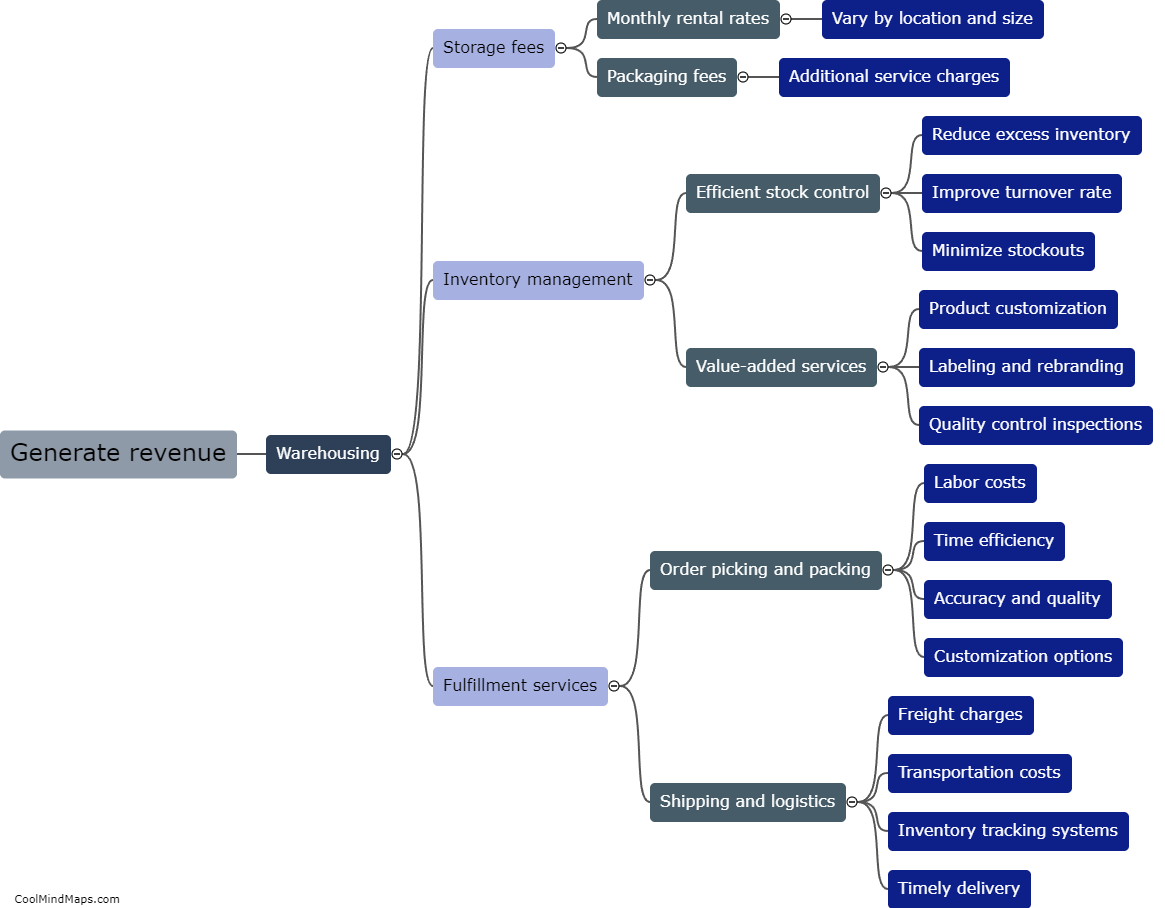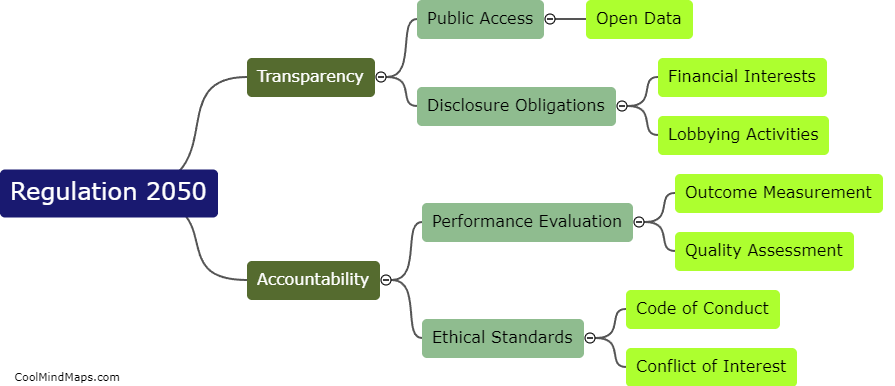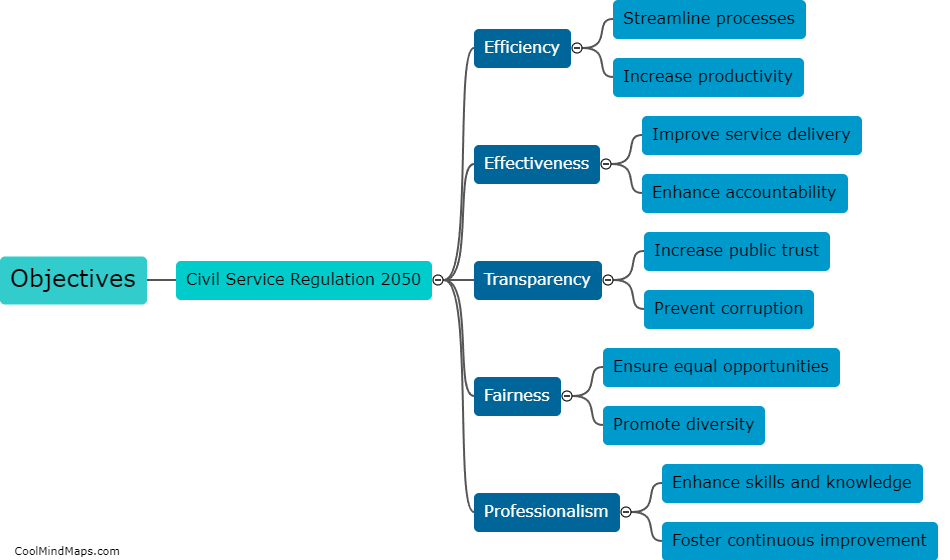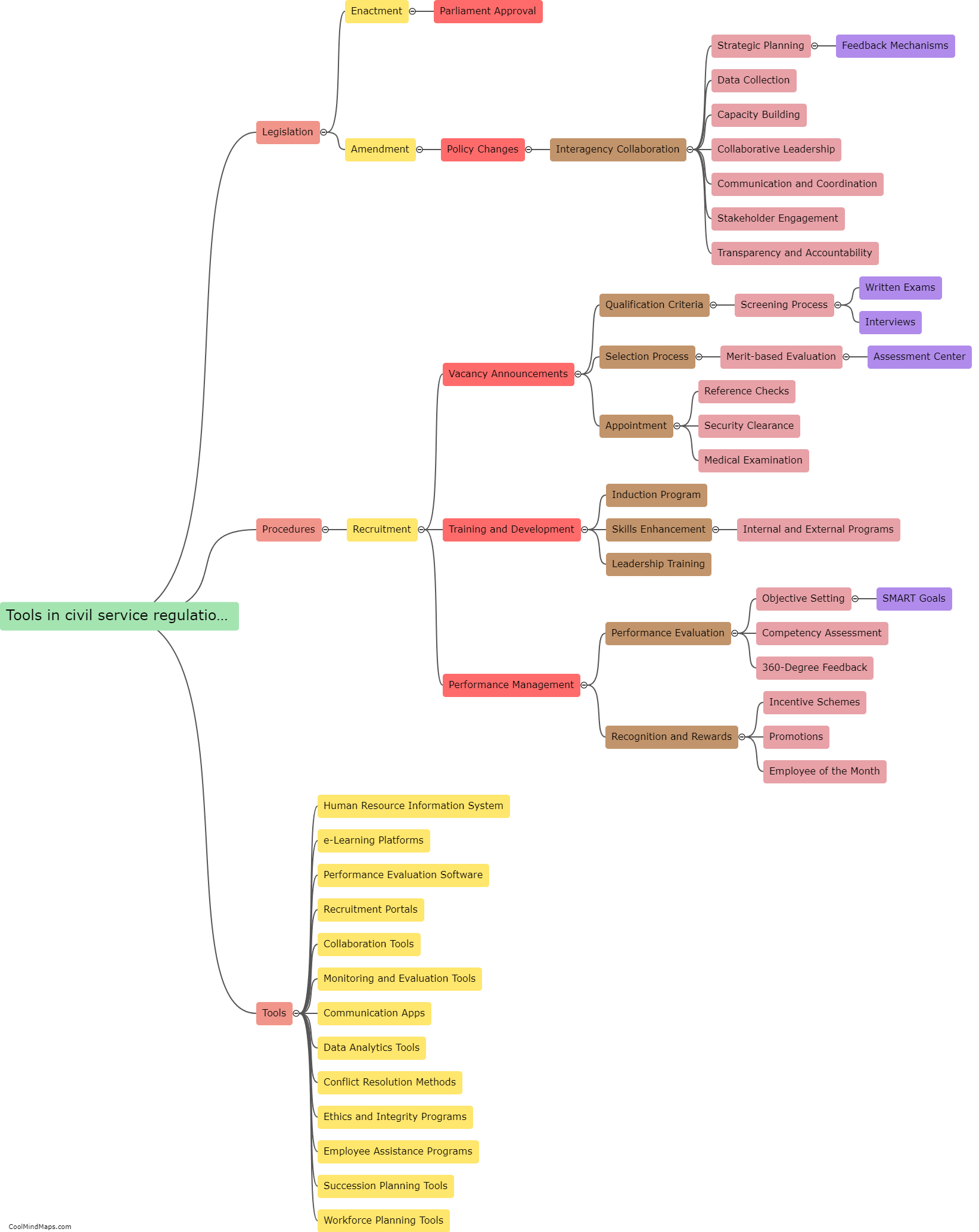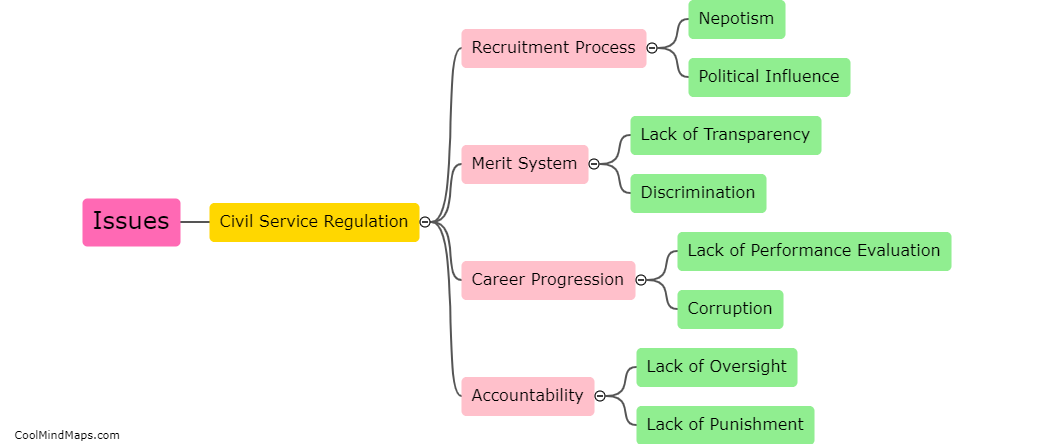What are the benefits of the tools in civil service regulation 2050?
The tools in civil service regulation 2050 offer numerous benefits to the field of civil service and governance. Firstly, these tools enable more efficient and seamless administration through the use of advanced technologies and digital platforms. This leads to streamlined processes, reduced paperwork, and improved communication between government agencies, resulting in better service delivery to the public. Additionally, these tools help in identifying and addressing issues related to corruption, fraud, and unethical practices by implementing robust monitoring systems and strict adherence to regulations. The tools also assist in managing and analyzing vast amounts of data, facilitating evidence-based decision-making and policy formulation. Overall, the adoption of these tools in civil service regulation 2050 enhances transparency, accountability, and effectiveness in the delivery of public services, ultimately improving governance and citizen satisfaction.
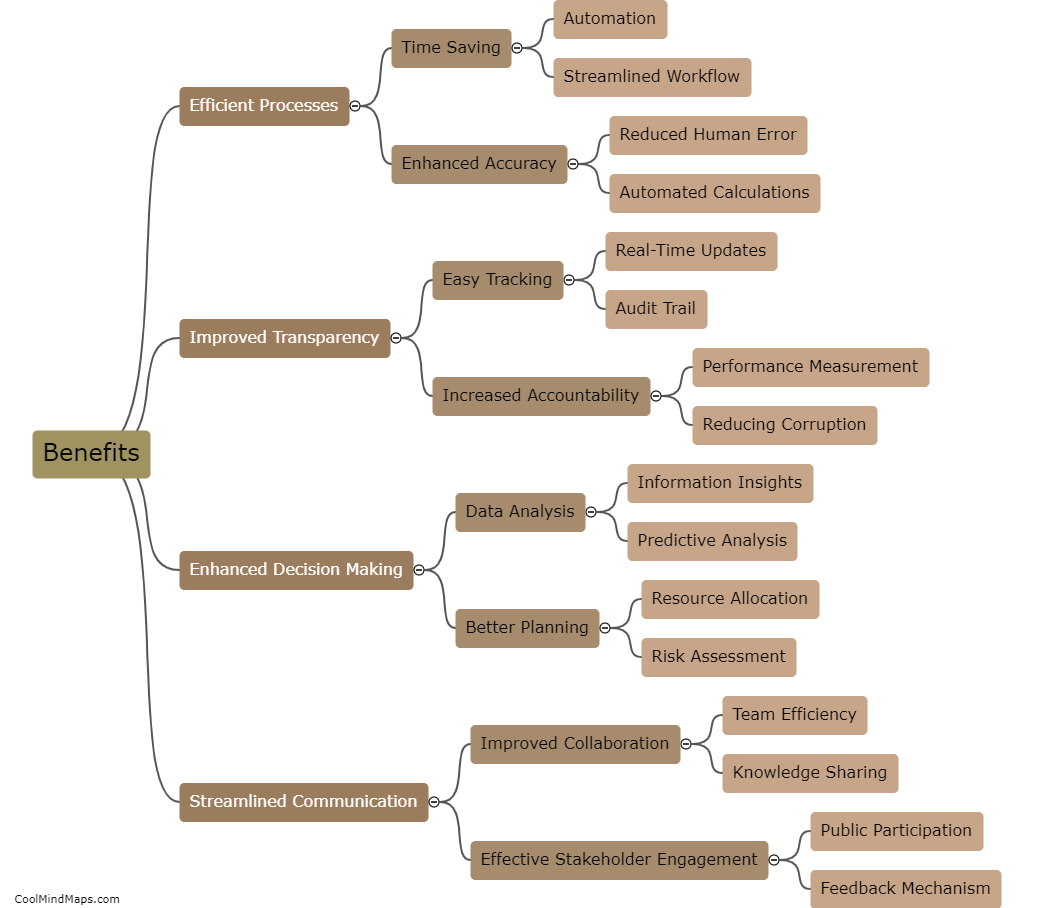
This mind map was published on 26 November 2023 and has been viewed 88 times.
